The timing of the submission of his nomination form, the choice of party platform and the quiet that preceded all of that suggest that he might be the dark horse that has been a well guarded secret. There were two of them speculated to have been positioned to shatter the domination of the 2019 presidential race by oldies who have become used to power to the point of taking Nigeria for granted. One is Professor Jibrin Ibrahim while the second is Dr Obadiah Mailafia.
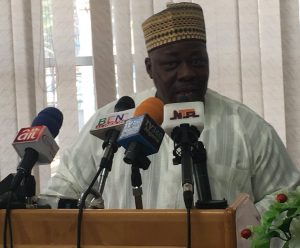
Prof Jibrin Ibrahim
Both have the advantage of strong education; of having lived in France and being able to speak French, an important qualification for power in the age of deconstruction, a unique French cultural contribution to analysis of power. Both are also absolutely easy going to the point that even as president, you can call them by their nicknames without that becoming a challenge to authority. In other words, they do not carry the inadequacies that people in power manifest in the furiousness of their mien. And both are para-journalists. While Ibrahim writes a column with a disciplinary analytical instinct, Mailafia has recently become combative on the national question. None of them would suffer an irreversible disadvantage for these streaks at the negotiation table in so far as the streaks can be taken as their fears and, at worst, their bargaining chips. After all, as they say, “the nation is an everyday plebiscite”. Only difference, not sameness, is a subject of negotiation.
Lastly, both Ibrahim and Mailafia would have imbued the race with that elusive thing called the trained mind and the freshness or quality of newness that comes with it to a dull, uninspiring atmosphere of politics in Nigeria. Now that Prof Ibrahim is nowhere near the battlespace, only Obadiah’s entry is the issue in this analysis.
There is mystique in his entry that suggests he might be the much talked about dark horse that has been well kept as a secret in ruling class politics. He has been quiet of recent relative to the decibel from other aspirants for the top job. Could he have been negotiating with contenders, pretenders, king-makers, godfathers and is just emerging when he is satisfied that he has the backing with which he can unsettle the crowded race? Two, is his choice of ADC as party platform. He could not have chosen a party whose older and more established occupants are not or might not be friendly to his ambition.
Third, he is the technocrat’s technocrat, the quality that has been emphasised over and over in the most important quarters in the politics of power in Nigeria. A professor even let it be known that competence is of a higher rating than the strong president. It was a manner of saying that the rough- rider is himself a critique of what it means to be powerful in the 21st century. Hitherto, all eyes turned in the direction of Governor Ibrahim Dankwambo of Gombe State whenever technocracy as a quality was called upon. Dr Obadiah is a higher practitioner of technocracy although rating in such matters are not decided quantitatively but by the opinion of those who do the deciding.
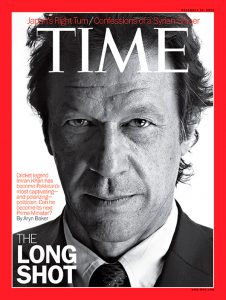
For those who can read the rider, what Time wrote several years ago about Khan can be written almost word for word for Mailafia: Cricket legend Imran Khan has become Pakistan’s most captivating – and polarising – politician. Can he become its next Prime Minister?
But even then, how far might the technocratic forte be relied upon to take any politician seeking presidential power in Nigeria today? It doesn’t work alone but given the victory of Imran Khan in Pakistan recently as against the defeat of Dr. Kandeh Yumkella in Sierra Leone in spite of his technocratic brilliance, it bears asking the question. It would seem that to beat an incumbent, a candidate has to pose a narrative of Nigeria that can fire the imagination of ordinary Nigerians, from Abuja to Abakiliki; from Yauri to Yenagoa and from Bama to Badagry. Would this be Dr Mailafia’s ideological gaze?
It would appear so since the two other alternatives do not seem to hold any promise for him. One of the two is the narrative of the president who will jail suspected corrupt elements, retrieve whatever they have stolen and redistribute it and the past would have been unmade. This is the narrative President Buhari is selling. He gave the broadest hint of this on his return from his last London trip. How well he sells this narrative to the targeted audience vis-a-vis victory in 2019 rests in speculation at the moment.
The second alternative is the ethno-religious cum regional card. It is pervasively mobilised during every election Nigeria has held but it never carries anyone far enough. Elite pacts still work better in bringing people to power even though it has the problem of being unsustainable. Elite pact rather than religion worked in 1999, 2011 and 2015 although each time, the pact could not survive more than two years.
In other words, even if Dr Mailafia is the consensus of the greatest mountain movers around, he must still worry about ideologically framing his politics to capture aggregate sentiments in Nigeria and transform from an angry nationalist to a leader. His Oxford University background and his stint in international civil service as well as a previous strategic position in Nigeria’s Central Bank prepared him for no less.
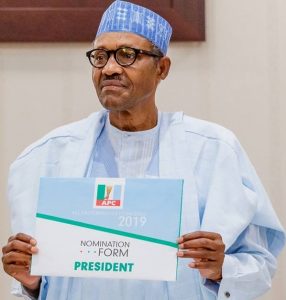
Incumbent and incumbency

It is being said that what Lamido lacks in a godfather, he has got in wits
Still, how does he overwhelm all the Atiku Abubakars, Rabiu Kwankwasos, Bukola Sarakis, Ahmed Makarfis, Sule Lamidos, David Marks and all the other top guys out there? And that is besides President Muhammadu Buhari who might be highly estranged but cannot be dismissed yet. Buhari has incumbency; Atiku is versatile and resource capacitated; Kwankwaso can claim to have got the people on his side; Bukola Saraki has maneuverability; Sule Lamido who does not appear to have the resources or the situatedness in elite crust has got wits. There are two governors who have got youth and locational appeal to play with. Of course, he would not need to worry about this if he is the dark horse except that, in politics, even a dark horse can encounter storm.
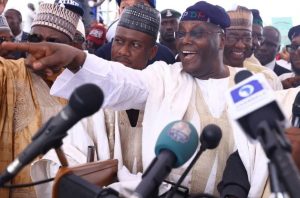
Atiku Abubakar on cue to move

Bukola Saraki takes his quest before a godfather
Intervention takes itself seriously in the business of analysing the 2019 presidential contest in Nigeria. Only four out of the 15 it speculated in its last outing on that, (see “Reinventing Leadership in Nigeria: Assessing the Top Contenders from the 2019 Battleground”, August 05, 2017) are not in the race. These are General Agwai; Nasir el-Rufai; Jibrin Ibrahim and Buba Marwa. All the rest on that list are in the race and these are Atiku Abubakar; Ibrahim Dankwambo; Jerry Gana; Rabiu Kwankwaso; Sule Lamido, Obadiah Mailafia; David Mark; Bukola Saraki; Aminu Tambuwal and the proverbial Dark Horse. Nuhu Ribadu is not in the race because he has, by his own testimony, yielded ground to the incumbent.
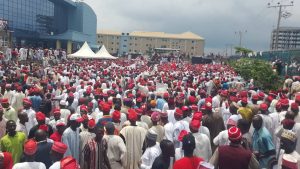
Kwankwaso, mai mutane!
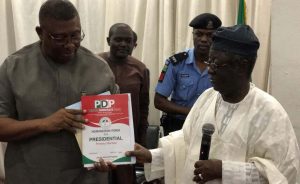
And Da Jonah Jang
In spite of everything, there is newness in a PhD holder from Oxford entering the race for presidential power in Nigeria at the most uninspiring moment in the history of the country. It would thus be interesting to watch Mailafia’s progression, particularly his narrative of diversity and difference and his response to the crisis of rapid social transformation. There is no knowing who can make the difference until he or she is in the saddle! Dr Mailafia’s entry means there are just two aspirants with alternative backgrounds from the pack: Mailafia and Gbenga Olawepo-Hashim. They both appear to have been thrown up by the crisis of diversity and difference!






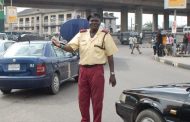

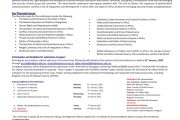

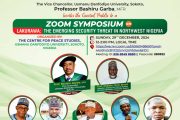

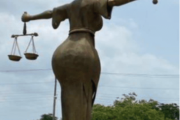

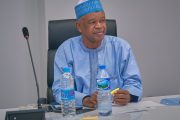














1 Comments
Joshua SEGUN IJAGBEMI
The glorious future of NIGERIA and the black race in general has been revealed through JUSTICE MUST PREVAIL PARTY (JMPP). Visit http://www.jmpp.ng
https://youtu.be/ODKJfvEwzEk
And share.
CONGRATULATIONS!